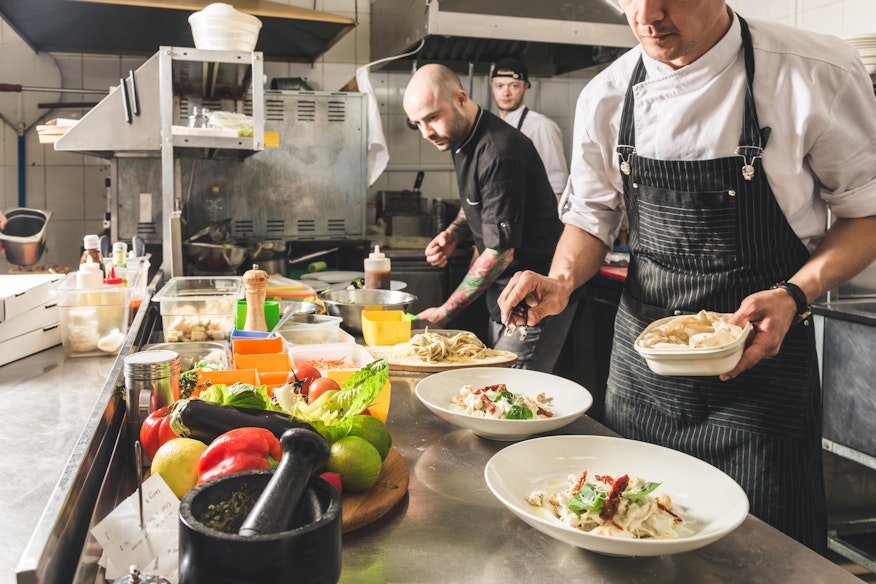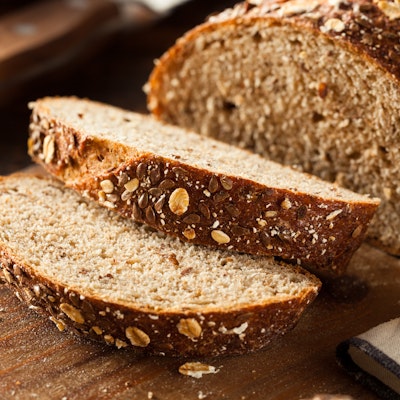Why you should make avoiding Cross Contamination a priority

Food allergy-related deaths are on the rise. There are currently around 10 every year in the UK *, with the NHS reporting♰ a 72% increase in the number of children being treated for anaphylactic shock since 2013/14, showing just how dangerous navigating food allergies can be for consumer sufferers and caterers alike.
Whilst its the importance of labelling that has grabbed all the headlines, there’s another issue that desperately needs to be addressed, and it’s one of particular risk to caterers: cross contamination.
A recent FSA study reported that 60% of respondents had avoided eating out in the past 6 months because of allergies – with many mentioning they had little confidence that food businesses can provide correct information about allergens in their food. Erudus’s own Marketing Assistant, Victoria McEwan, who suffers from a severe peanut allergy and coeliac disease, tells us she once “ended up in hospital after being reassured twice that my meal was peanut and gluten-free. It’s terrifying because your life is in someone else’s hands.”
With the stakes so high, we thought we’d take a deeper dive into the issue of cross contamination, as well as some of the emerging solutions…
How the landscape is changing…
Heightened sensitivity is changing the way manufacturers deal with cross contamination, in the form of completely separate production facilities.
Sun Valley, a market leading supplier of processed nuts, opened up a new factory specifically to keep tree nuts and peanuts completely separate after noticing a rise in both peanut sales and reported peanut allergies over a 2 year period. When they did this back in 2006 it was a particularly progressive move, but now the rest of the industry is starting to catch on, with those manufactures catering to specialist diets among the keenest to follow suit.
What can caterers do…
Michael Walker, Head of Office for Government Chemist says “the food industry is about people, good service, high reputation and the vast majority want to behave responsibly and are anxious to avoid causing harm”. He believes that businesses should view customers with food allergies as an opportunity to help people, as well as building up their reputations.
Caterers without appropriate procedures in place face a high risk of cross contamination, and 95% of food safety professionals have stated that cross contamination is their main worry.
So how can it be managed? If you keep foods, or use ingredients, which contain any of the 14 major allergens you can greatly minimise your risk of cross contamination by following these golden rules:
-
Store foods with allergens on separate shelves in fridges and in separate containers used only for that particular allergen, ensuring they’re tightly sealed.
-
If you have a big enough kitchen, create separate food preparation areas dedicated to different allergens. If space is limited, surfaces need to be thoroughly cleaned before you prepare any meals and “may contain” declarations must be made – even if they are not present in the finished product.
-
Nothing can ever be too clean – wash your hands at every stage of the process as well as thoroughly cleaning surfaces and utensils before cooking.
-
Having separate equipment highly reduces the risk of cross contamination. Use and label separate kitchen utensils – even after cleaning, airborne contamination can occur from allergen substances in the air. Labelling will make it easy to identify allergen-free equipment. Some caterers choose to use purple equipment (the universal colour for allergens) to prepare allergen-free dishes.
-
If you can’t use fresh cooking oil every time, make sure you have dedicated fryers for allergen safe food.
-
If a mistake is made, notify your consumer and start again making sure there is no cross contamination this time. A customer would rather their meal take longer and be carefully prepared than present even the smallest risk of danger.
-
Training, education and continuous refreshers for all employees are vital so that they’re aware of the risks and fatalities of cross contamination. Your staff should be able to help consumers can make informed and rational decisions about the food that they are eating.
Eradicating the risk of cross contamination isn’t going to be easy, but it’s something caterers must do if they’re to thrive in the modern food landscape.
With Erudus it’s easy for you to identify allergens and make allergen sufferers aware of what’s in their food through tools such as our recipe builder and query builder.
* https://allergytraining.food.gov.uk/
☩ https://www.bbc.co.uk/news/health-50423095


